Georgism after WWI
After the desolation of the First World War, many of the earliest successes of the Georgist movement were now in ruins. The burgeoning economic movement had initially secured a number of important successes, but these were lost or forgotten as the shells fell in France and governments turned their mind to survival and violence rather than economic reform.
In Great Britain – after causing a tremendous parliamentary battle and a constitutional crisis that stripped the unelected House of Lords of its ability to block legislation indefinitely – a national survey of land values, ordered to precede a new system of land taxation, was suspended by its own author, David Lloyd George, upon the outbreak of the war.
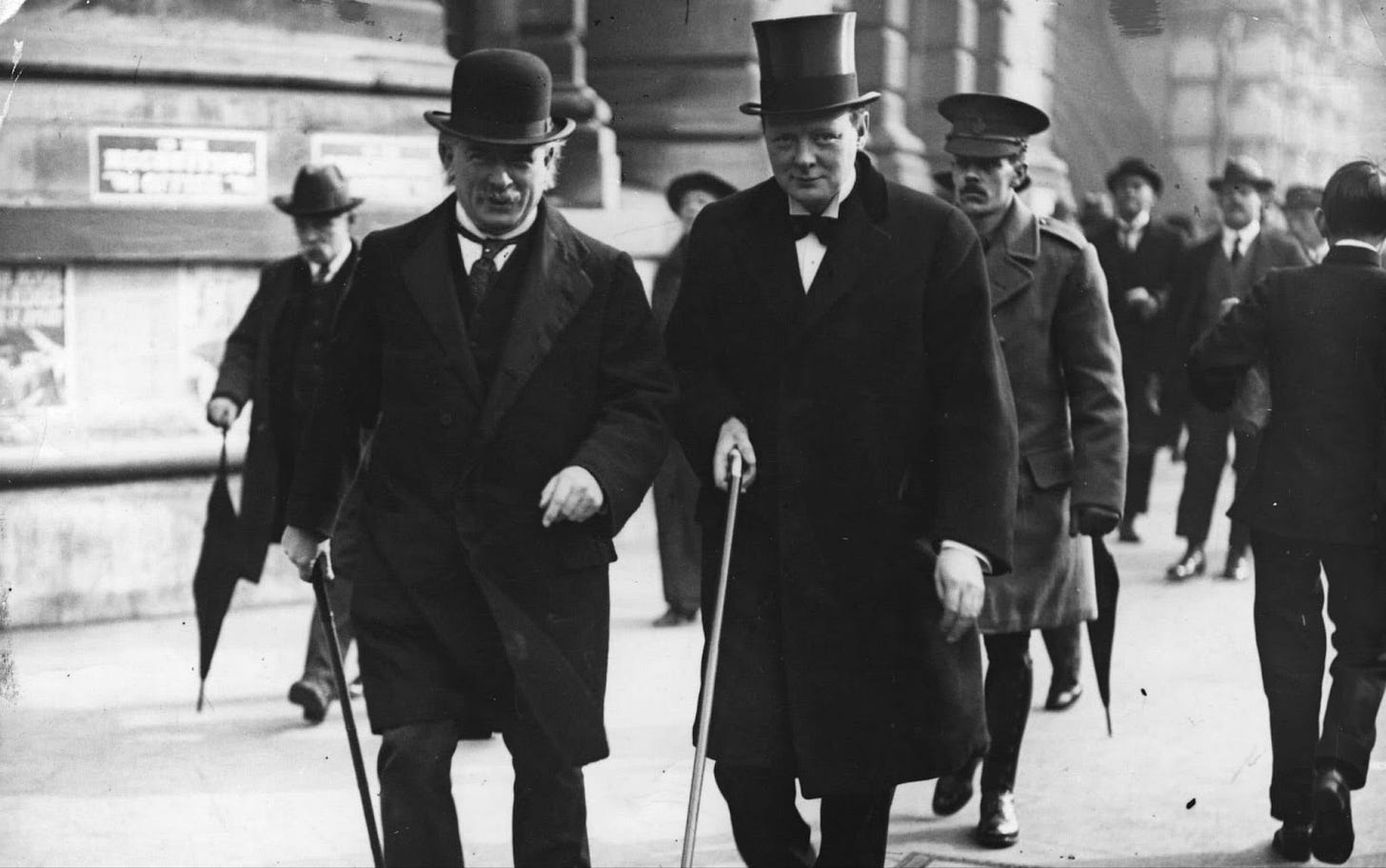
In Germany, the pride of the country’s land reform movement, the city of Qingdao in the Jiaozhou Bay – a Single Tax experiment which had seen the port city become a model for China and the country’s first President, Sun Yat-sen, when he’d visited it in 1912 – was captured by the Japanese at the start of the war.
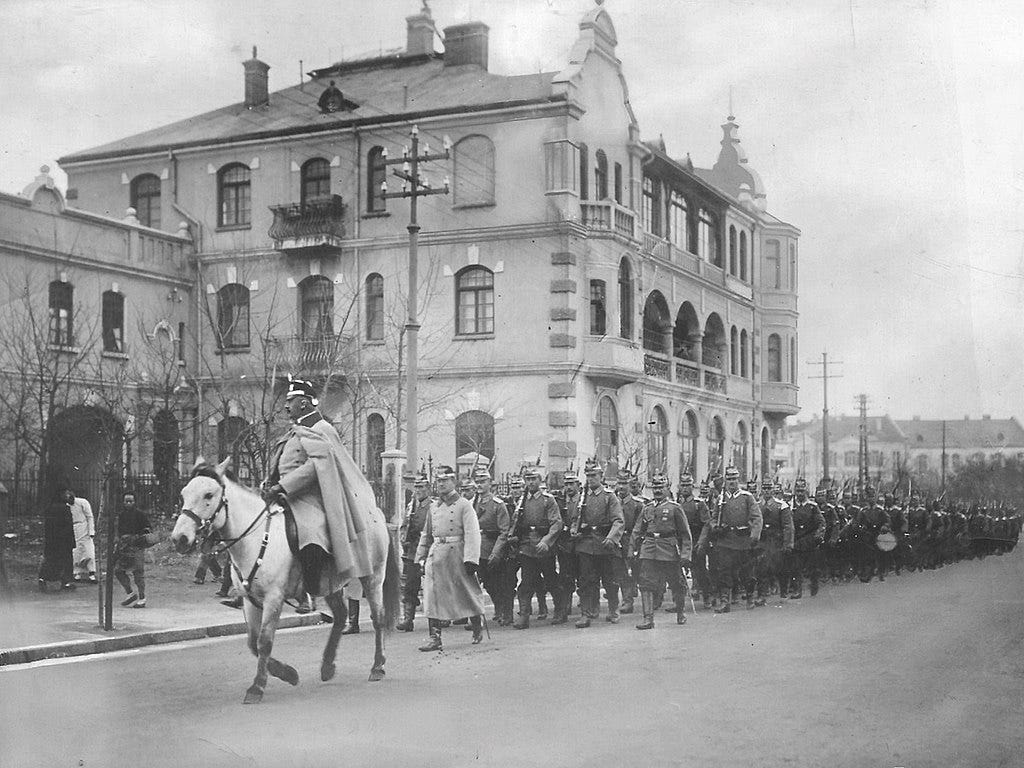
In Hungary, city governments which had implemented local land value taxes in 1917 and 1918 were rattled by the inflation of 1919 and an effort to implement Land Value Taxation on a national level by Mihály Károlyi was upended first by a communist takeover and then by the installation of Miklós Horthy’s dictatorship.
In Spain, after growing to its height in 1911, the Georgist movement found itself suppressed, along with the rest of the left, by the dictatorship of Primo de Rivera at the conclusion of the war.
Only in Denmark was progress not undone, where the Radical Liberals were able to establish a national reappraisal of property split between land values and the value of improvements, something which after the war, in 1922, was turned into a lower rate for improvements and a higher rate for land values. By no means the Georgist ideal (something which would continue to elude Danish Georgists, constituted in the Justice Party, to this day), it still unfortunately represents perhaps the greatest real success of Georgism in Europe.
A New Beginning
“Land solves all industrial troubles; for it furnishes opportunity for self-employment.” Herbert Quick, From War to Peace (1919)
Despite these losses, the Georgist movement was bright with anticipation. The rebuilding of economies and societies offered great opportunities to prove that Georgist principles could serve as the basis for a better world. Herbert Quick published an appeal for a new Reconstruction built upon land reform, one which would refound the world order on new principles. While his appeal was not fully embraced, land taxation became a major part of the revolutionary and radical reform movements throughout the continent.
In Germany, while the land reform movement had lost its crown jewel, the model city of Qingdao, it had gained a new model for land use in 1917, in the form of Franz Oppenheimer. Oppenheimer published an analysis of the Jewish National Fund and its land use programme in Ottoman Palestine, which promoted the common ownership of the land and a recognition of any private property in land being held in fee from the state.
This movement was influential enough that it made a significant impression on the constitution of the new German republic:
“The cultivation and use of the soil shall be the duty of its owner toward the community. An increase in the value of land which accrues without the application of labour or capital to the property shall inure to the benefit of all.” – Extract from Section 155 of the Weimar Constitution
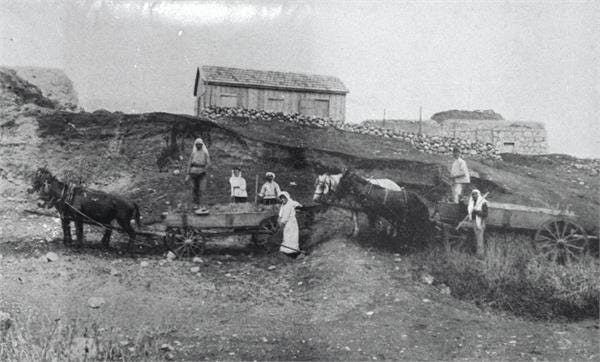
In Britain, although the Liberal Party was broken and divided against itself by the end of the war, and David Lloyd George found his government reliant upon Conservative support, the Labour Party was close to electoral success. It counted among its members a number of Georgists and their allies, including Philip Snowden, who had helped Lloyd George draft the very Finance Bill, and its land taxation provisions, that had caused such a revolt from Britain’s upper classes.
“I challenge the Chancellor of the Exchequer, and I challenge any Member on the other side to defend this system. Can anyone say that the fruits of local rates, the fruits of industry, should not be retained by industry, but should go into the pockets of certain individuals who have contributed nothing by their labour or industry to the creation of that value?” – Philip Snowden, Debate on the Finance Bill of 1928
After the Great Depression, Philip Snowden found himself empowered as Chancellor of the Exchequer to pass a land value tax, and the Finance Bill of 1931 containing a land value tax actually became law on July 31st of that year.
In Spain, after the fall of Primo de Rivera’s dictatorship, the Georgist movement emerged with great hope, like so many others, during the Second Republic. Land value taxes were passed in Seville and in Catalonia in 1933 and 1934, and the Spanish Single Tax League was an active presence in the country.
Gathering Shadows
Unfortunately, the chaotic energies unleashed by war could not be so easily tamed. The brief interval of peace after the War to End All Wars was soon interrupted by the economic crisis of the Great Depression, which bore heavily on Georgists in the midst of reform. The very day after British Chancellor Snowden passed the land value tax in the Finance Act of 1931, the May report announced that the country was about to suffer an economic catastrophe. The Labour Party split in two, and the government found itself forced to go back to the electorate, who furnished them with a majority for their “National” government, but one dominated by the Conservatives. This new government turned quickly against the idea of land taxation and took up the favoured solution of the landowners – tariffs.
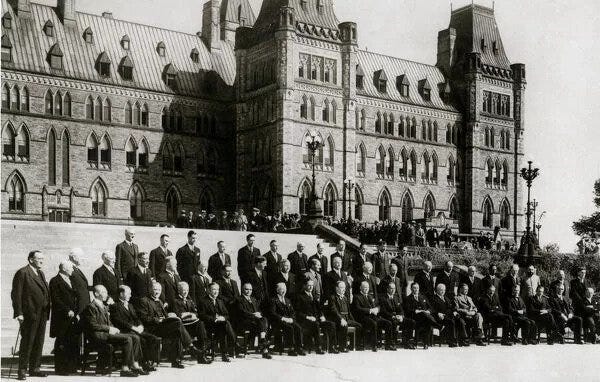
With Philip Snowden adrift and eventually raised to the House of Lords, having been expelled from the Labour Party for his cautious and austere response to the Great Depression and no longer welcome in the National government for his radical views on land taxation and free trade, the cause of Land Value Tax in the House of Commons fell to Andrew MacLaren who tried and failed to have the policy passed in 1937.
In France, even when successive socialist governments – whose official party policy was to tax land values – were elected on the principle of economic transformation, they neglected Georgist economic reform and instead sought the votes of a large class of landowners.
“This error of tactics is voluntary, because it permits those who hold or seek public office to promise the electors an earthly paradise and to mobilise the votes of the industrial workers without losing the votes of the small rural landowners whose land monopoly they sedulously defend.” – Sam Meyer and Achille Daudé-Bancel, France: A Political and Economic Survey (1939)
The power of landowners to influence the course of democratic politics was even clearer in Germany, where the old Prussian nobility (the Junkers) held incredible sway. Despite the fact that the constitution of the Weimar Republic committed itself to tax the unearned increment of land, no serious attempt to put this into practice was ever made and as the tumult of the Weimar years grew, so did the reliance of the elected government on the support of the Junkers. The culmination of this was the Osthilfe (“Eastern Aid”), a policy enacted to bail out the bankrupt estates of the Junkers in the aftermath of the Great Depression.
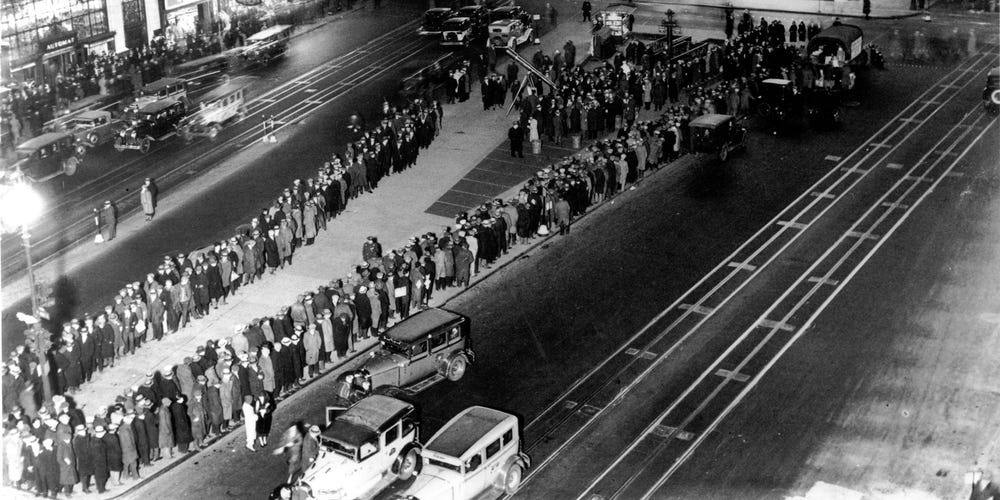
Many of the Junkers who received these funds went on to embarrass the government when they were discovered to have spent the money on extravagant luxuries. Even the President, Paul Von Hindenburg, was implicated, and the rotten nature of this aristocratic elite eventually led to the downfall of Heinrich Brüning when he proposed that the payments should be made conditional upon the giving over of small plots to unemployed workers in order to combat the Great Depression. Such a modest policy was denounced as “Agrarian Bolshevism” and he was replaced by a succession of reactionary governments committed to preserving the power and privilege of the Junkers, including the Nazi Party, which included in its manifesto a call to abolish all taxes upon land in favour of the stealing of land from other countries.
The Spanish Georgists would soon be faced with the same kind of coalition of fascists and reactionaries, animated, in part, by the desire to uphold the power of the landowning elite.
“More than fourteen of Spain’s provinces were, both by law and custom, the property of the aristocratic class. Extensive areas … were monopolised by a handful of people who resided more or less permanently in Madrid.” Jordi Fivaller, The Georgist Movement in Spain (1949)
Many Georgists would die in the civil war that followed. A report from the Spanish League of Georgists in Madrid recounts that the Georgist correspondent in Spain was missing and presumed dead, that the secretary of the League had been assassinated, and the vice president had been captured but managed to escape. The bloody end of the Second Republic swallowed up any opportunities for peaceful reformists to make change.
Perhaps the only place in Europe where Georgism endured was the country of Denmark, which serves as a remarkable demonstration that landowners – even rural landowners – are not inherently averse to the taxation of land values. Indeed, where plots are small and owners toil, they can even become favourable to the idea, which perhaps explains the lasting success of land taxation there. Farmers, in a country where land is scarce, could plainly see the benefit of encouraging those with excess land to put it to its best use or else sell it to those who could. Danish land taxation survived even the German occupation in the Second World War, and continues up until the present, although it now makes up a small proportion of the revenue collected by the Danish government.
Conclusion
Despite the tragic course of the movement in the 20th century, there is hope in the history after all. Georgism was a force which took the three largest calamities of the modern era to stagger. Two world wars and a depression later, it is clear that under the right circumstances, the ideas of Henry George can find an audience, and even electoral success. Germany’s weak constitution and its endemic political violence have since been replaced by an enduring democracy, and the cause of land value taxation has even found recent success there in Baden-Württemberg. What once were squabbling empires have, in many places, been collected into a political and economic union. Estonia, which spent most of the 20th century under the thumb of one empire or another, has since implemented a small land value tax in order to fuel its development.
Georgists today can take heart in the resilience of the movement throughout the world wars, noticing how close it came to success in so many places, and look with hope to the future. The social and economic problems that created Georgism are still with us, and people are looking for answers to climate change, to house prices and rising rents, and low and stagnant wages, all answers that can be found in a movement that aims to make land the common heritage of humankind. Although delayed for a moment by falling bombs, the communist specter during the Cold War, and the new frontier of the automobile, Georgism has proven itself a resilient contender for the hearts and minds of the people and the reform of society.
We can imagine a world in which their successes endured, where urban lands could not be held out of their best use as breadlines formed and where the old aristocracies were forced to give up their powers and privileges and where, perhaps, people could not be tempted by the stealing of land abroad as an alternative to equalising access to land at home. And in imagining, we can carry the torch where it fell amidst the ruins of Europe and make that future, our future.





Really well done historical survey! One of my favorite posts of this substack so far.
It hurts my heart to know how close Georgist reforms were to being achieved before being dismantled, but I have hope that the truth and justice of Georgism will prevail simply because you cannot get rid of its merit.